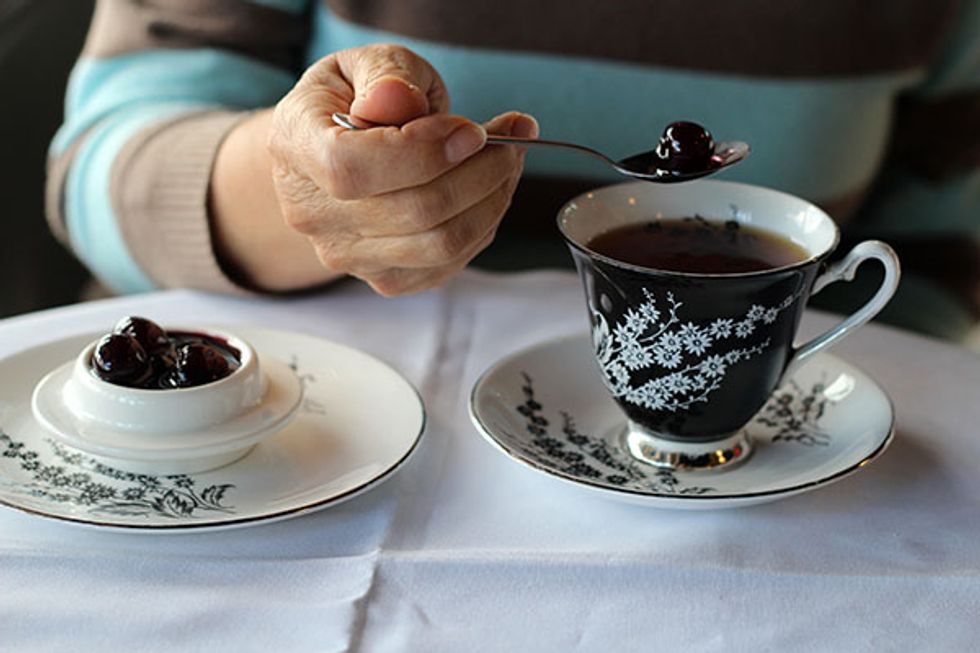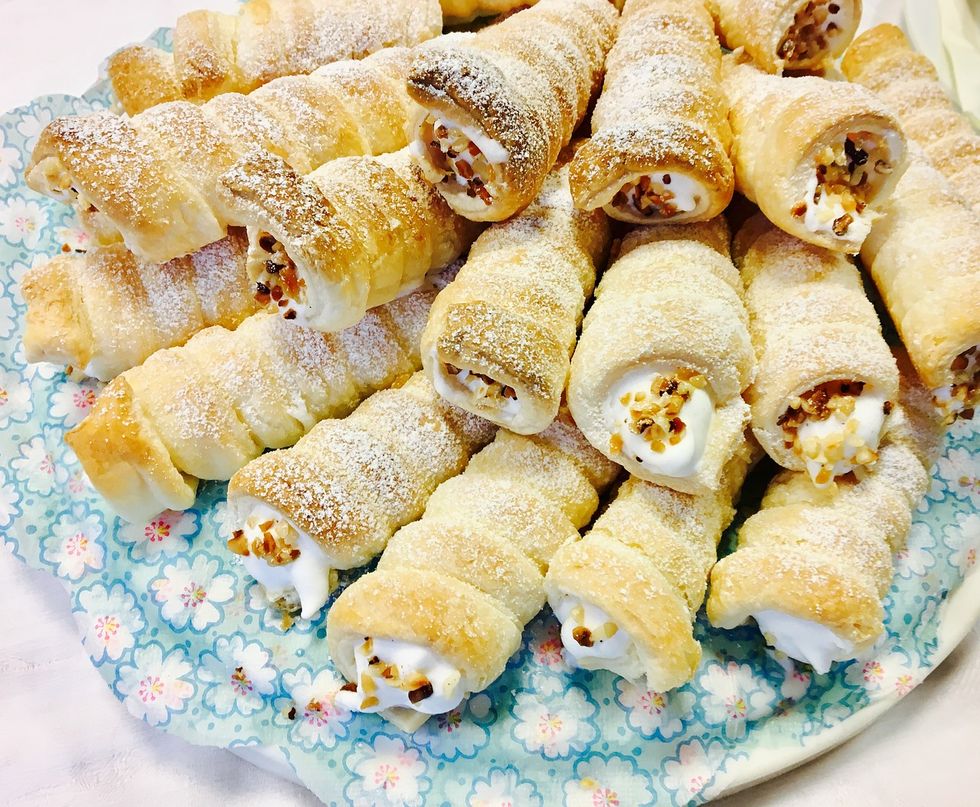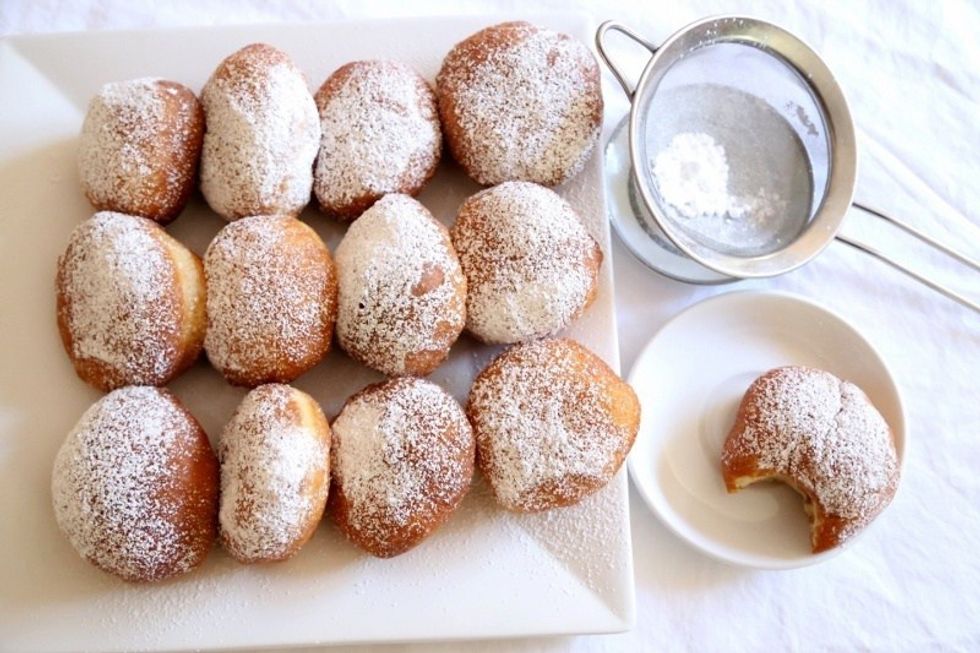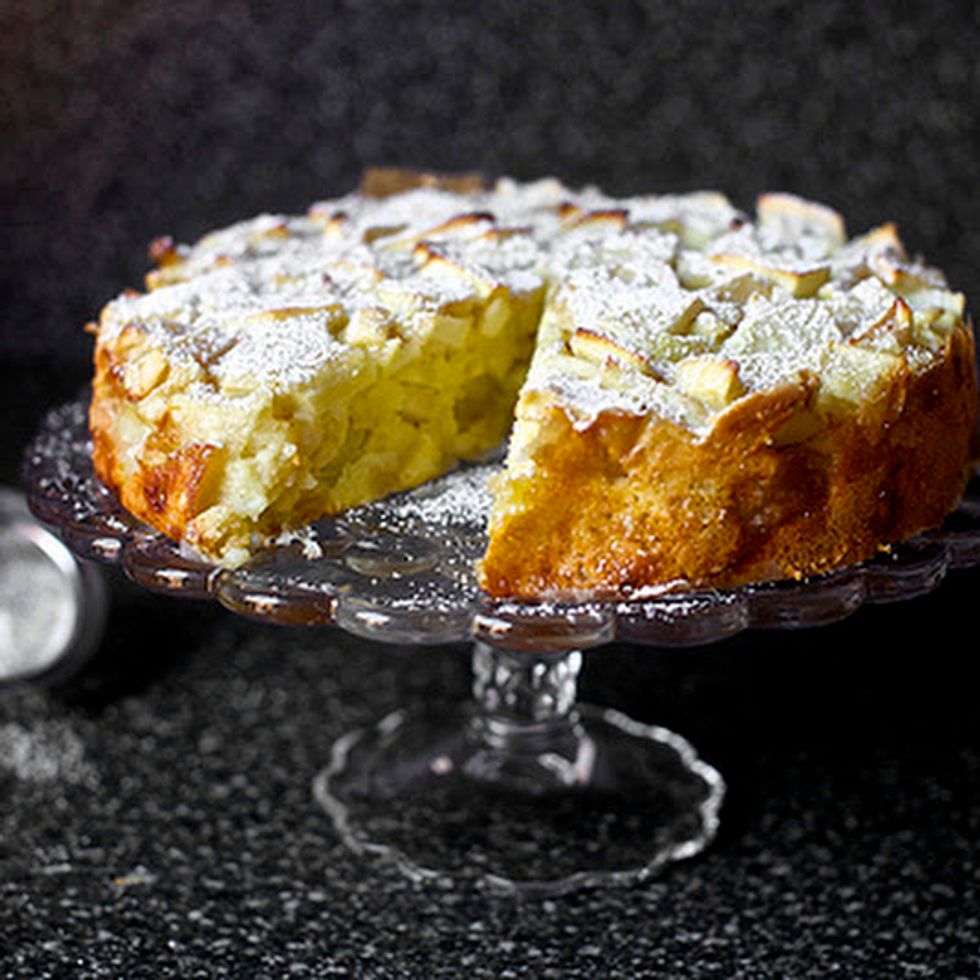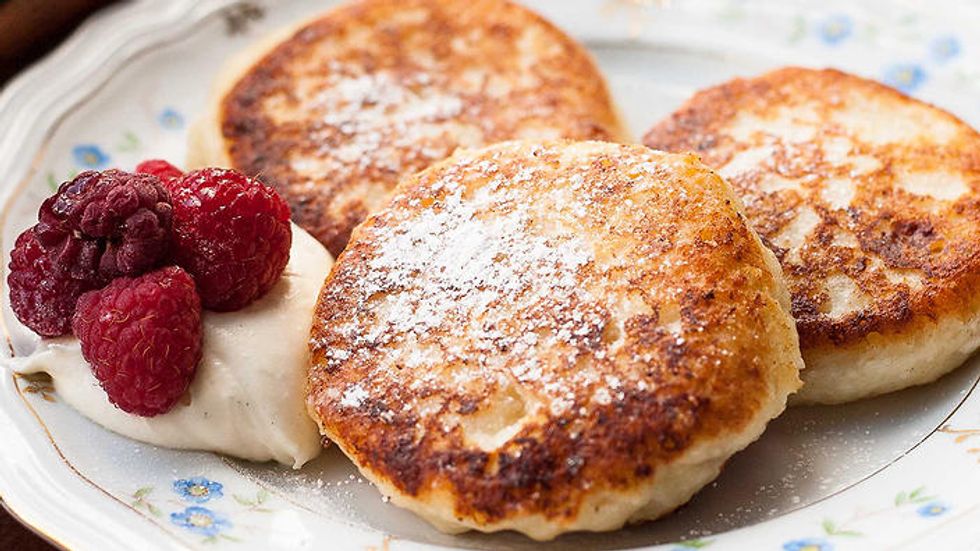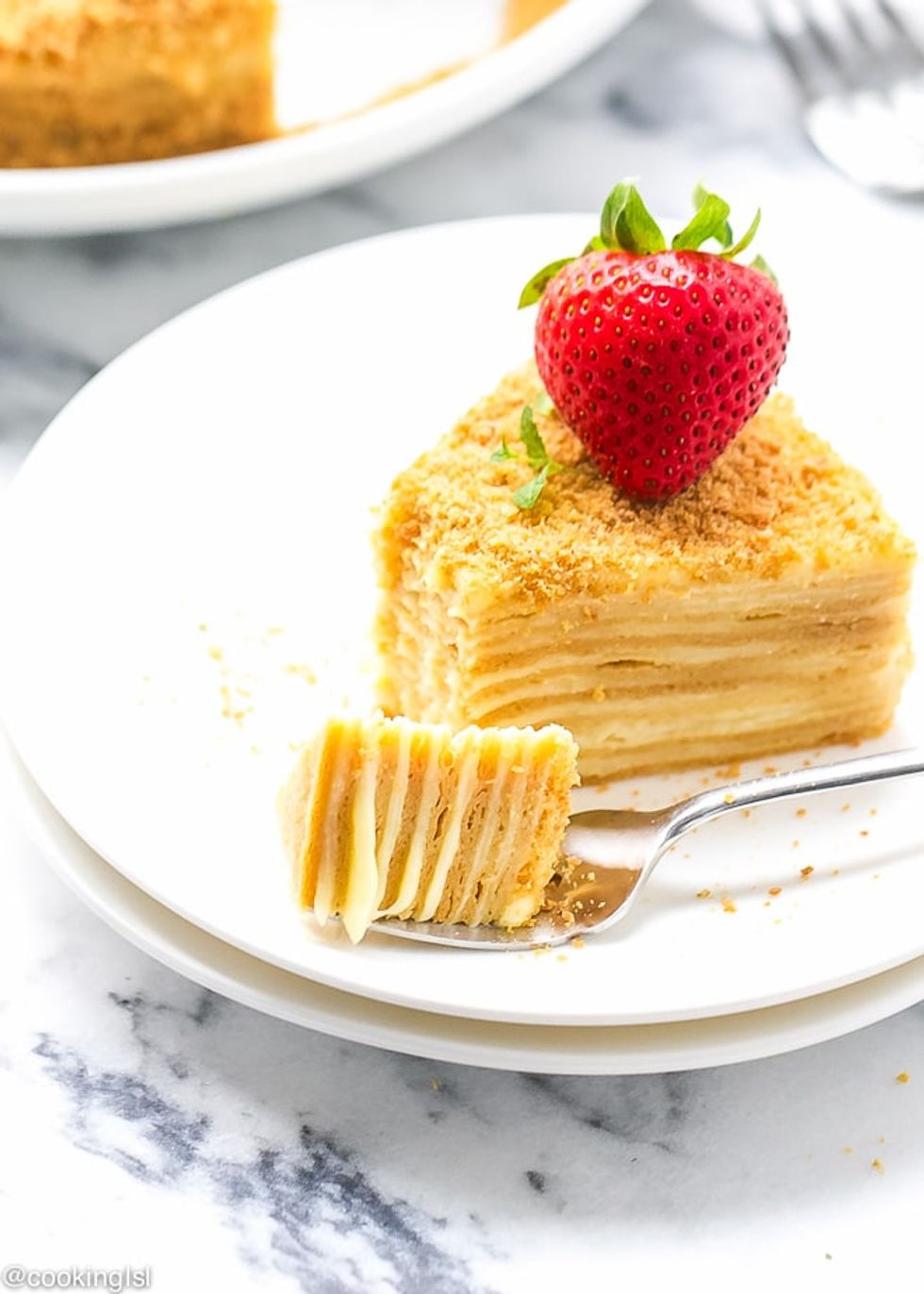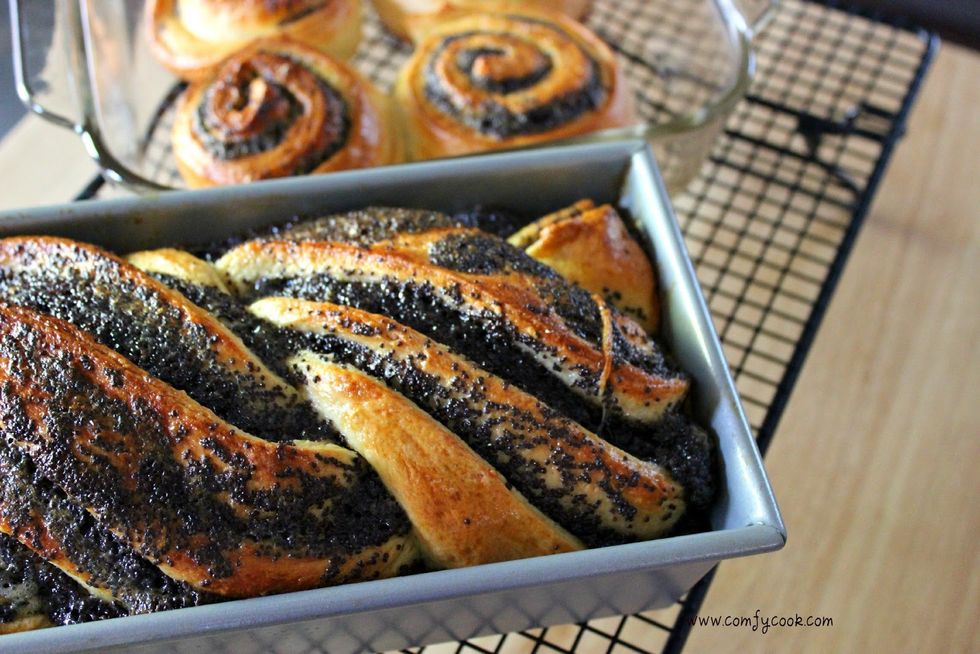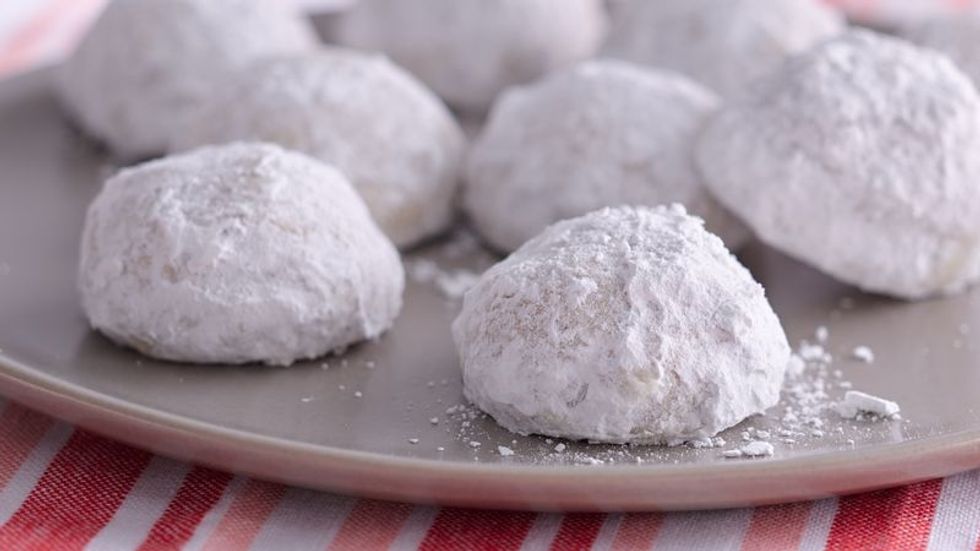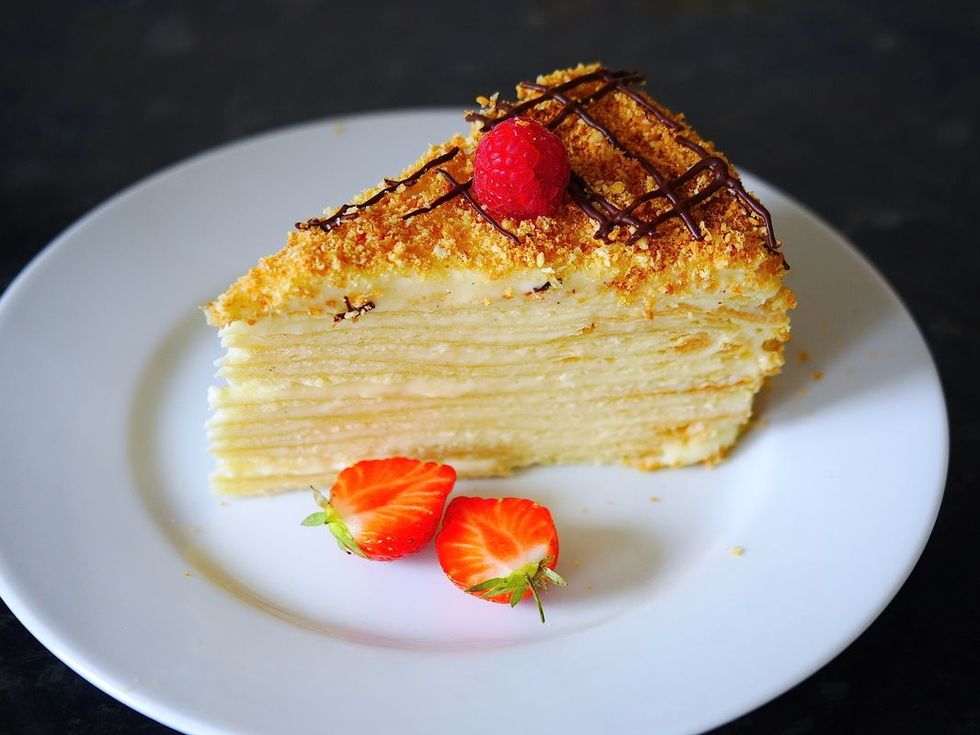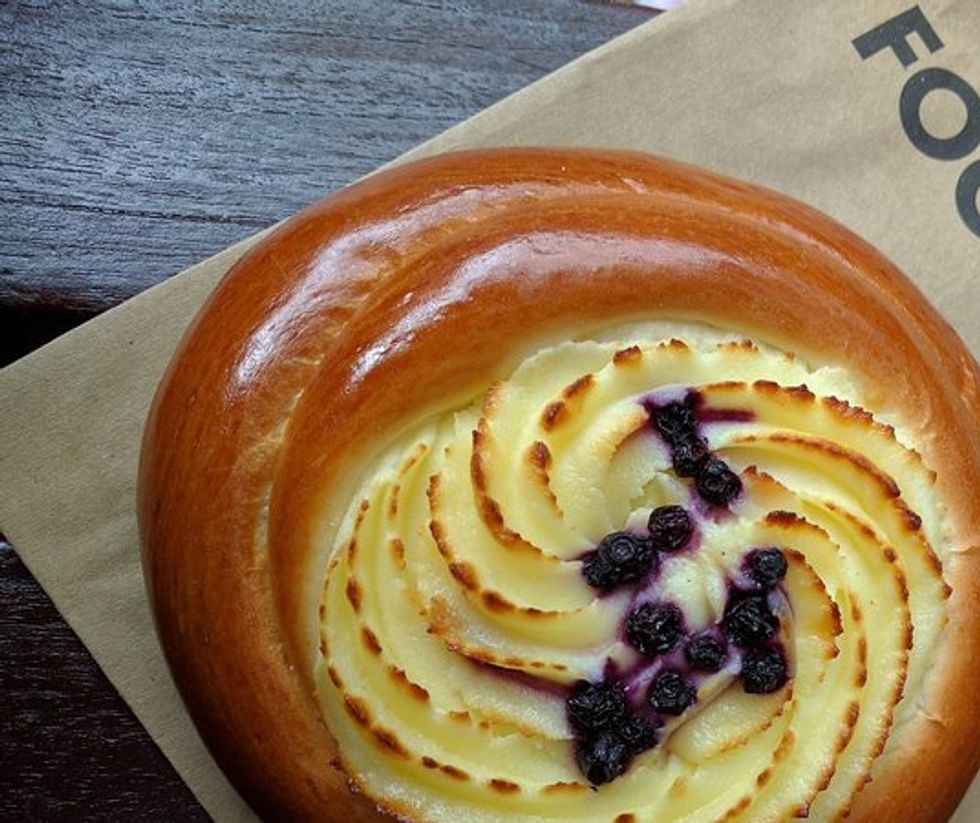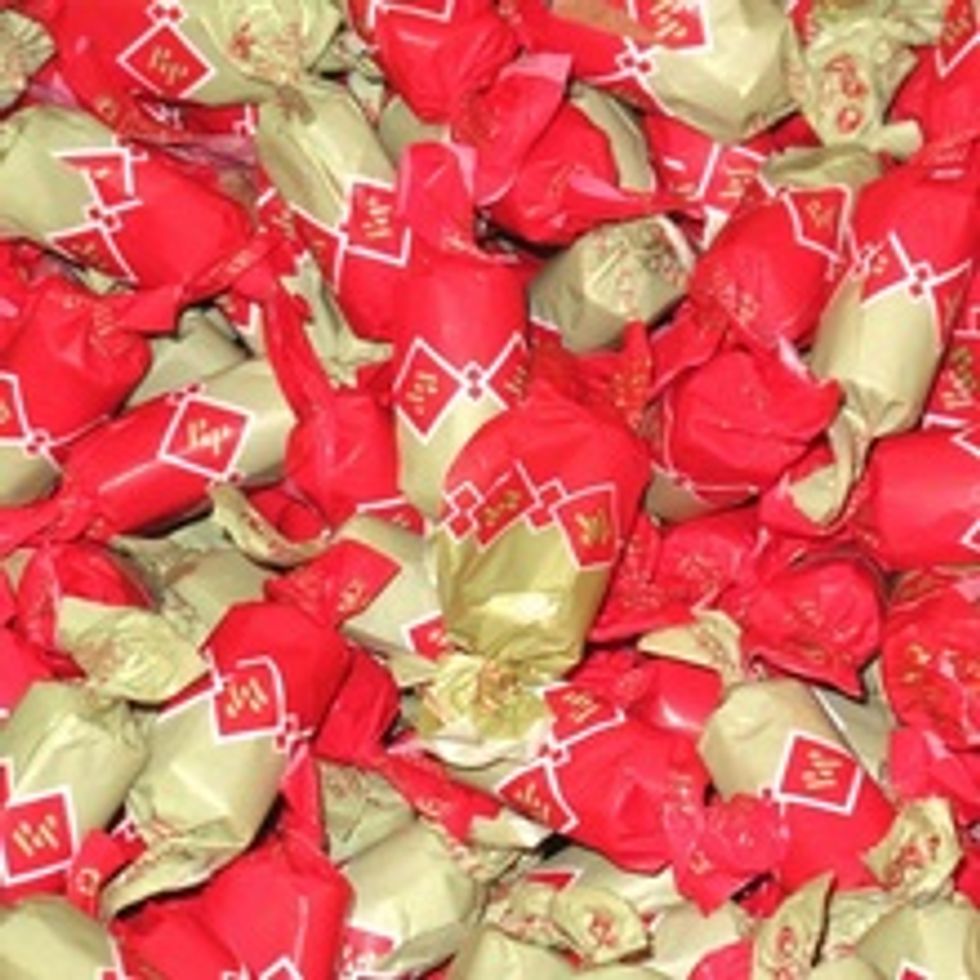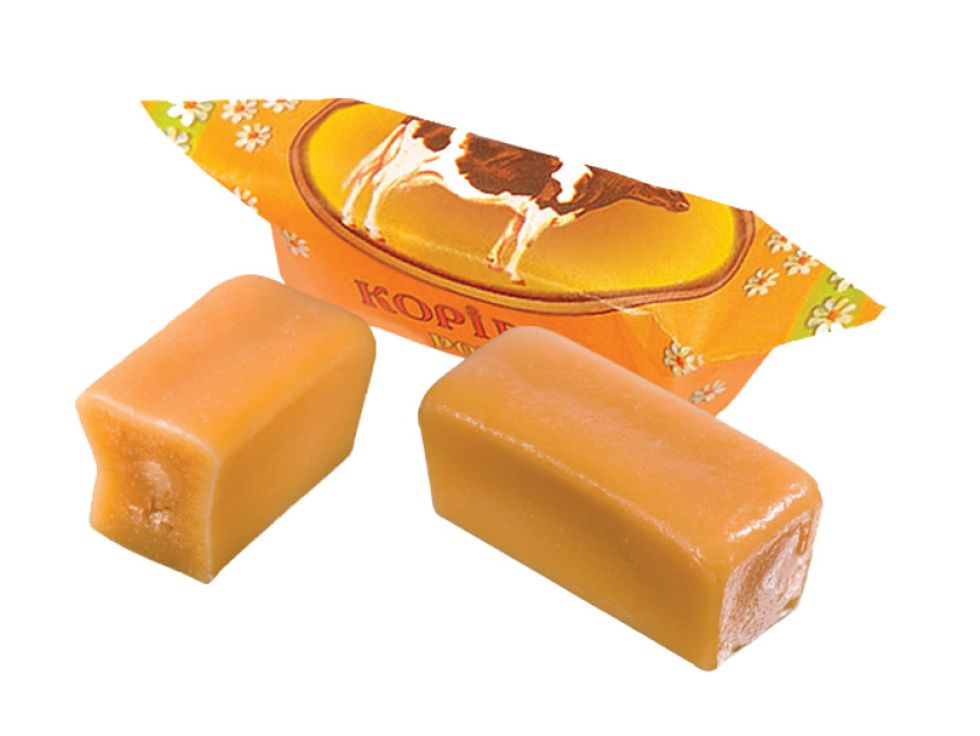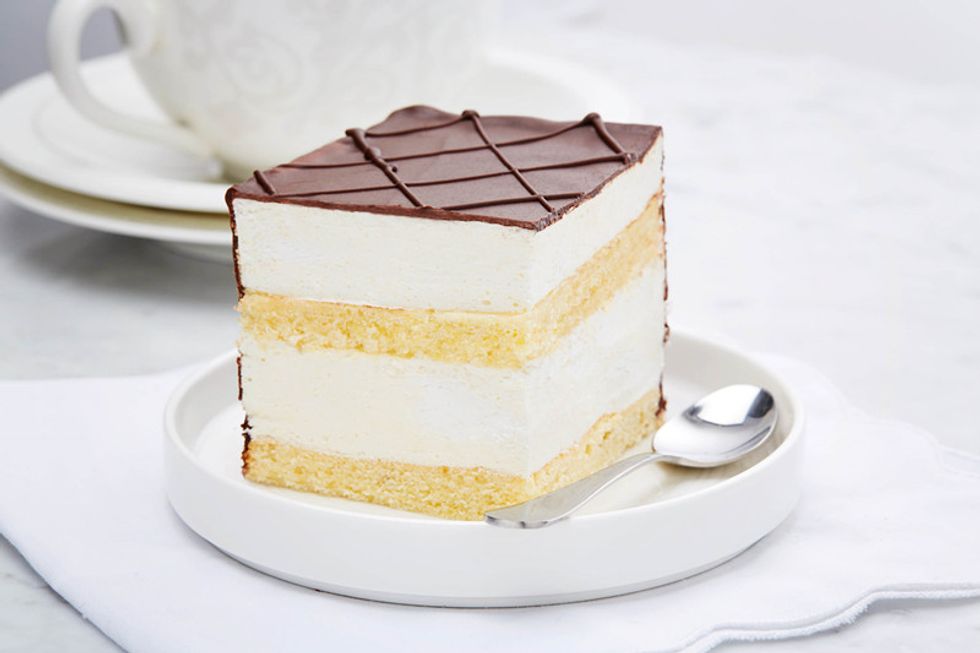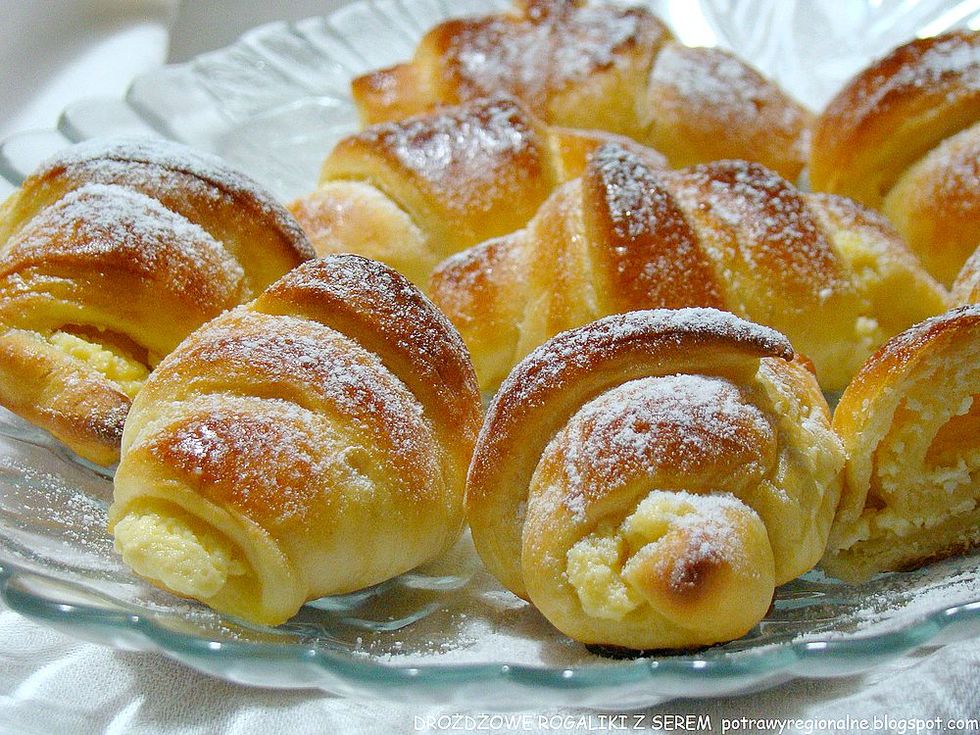There's nothing I love more than stepping into the home of my grandparents, breathing in the aroma of freshly baked Russian pastries, sweets and cakes. It is common in Russian households to sit around the dinner table in the evening and enjoy "chai." Chai in Russian translates to "tea" in English and it also means "tea-time." Thus, whenever it is time for "chai," it really just means it is tea time. Whether it's my grandmother's cooking or delicious candies from a local Russian store, this list of confections is near and dear to the hearts of those from the motherland, or those who simply enjoy indulging upon mouthwatering delicacies.
1. Ponchik
There's nothing better than tearing into a custard-cream-filled ponchik, a cousin to the American donut. Ponchik in Russian translated to donut, but can also be used to jokingly describe someone as chubby (because a ponchik is quite plump in size).
2. Sharlotka
Sharlotka is like a reverse-engineered American apple pie. This recipe is delicious and as simple as it gets: all you need is some eggs, flour, apples and sugar. Pop the mixture into the oven and out will come an incredibly moist apple cake that is best served with a dash of powdered sugar.
3. Syrniki
Syrniki are like the ultimate pancakes. All one has to do is stir together some flour, farmer's cheese and sugar, divide the mix into smaller portions, and watch those syrniki sizzle away to a perfect golden brown. If prepared correctly, you're in for a mouthwatering bite: crispy on the outside and creamy on the inside. Lastly, it is popular to eat syrniki with honey, jelly and sour cream.
4. Medovik
In Russian, "Myod" translates to "honey", and that is where medovik gets its name. The medovik is a honey layer cake, with its structure paralleling that of the French mille-feuille crepe cake (the French, however, have got nothing on this one). The delicious combination of honey and sweet cream, paired with the satisfaction of being able to slice through the cake perfectly with each forkful, is what makes medovik an excellent tea-time treat.
5. Poppyseed log
There's definitely a love-hate relationship when it comes to the poppyseed log. An acquired taste is needed, as with wine, in order to appreciate the sweet nature of this delicacy. But be warned: the more you eat this log, the more you will desire. It is almost as if an addictive element lies within the braids of this confection. In fact, opiates are derived from poppyseeds; however, fear not, for you would have to consume thousands of these logs to register even the slightest effect.
6. Tea cake
As the name implies, these sweet little cookies are meant to be eaten around the table with chai. You may also recognize these treats as "snowballs" and "butterballs." No matter what name you'd like to call them, they're delicious either way.
7. Pryanik
The pryanik has a history that stretches far back into traditional Russian cuisine. The sweet is a soft cookie made from honey and spices like ginger, finished with a vanilla glaze. These popular tea-time treats are sometimes baked with elaborate engravings as well.
8. Napoleon
Napoleon is the kind of tea-time treat that you put out on the table when the whole familia is at your place. The Napoleon is like a more sophisticated version of the medovik mentioned earlier and has its own distinct, delicious taste.
9. Vatrushka
If you had to describe what a vatrushka is to your non-Russian friend, you'd say that it closely parallels a cheese Danish (only it's ten times better). Vatrushkas can be served with a sweet or savory filling, depending on your preference. In other words, the Vatrushka can be considered an all-inclusive dessert.
10. Batonchik
These have got to be my all-time favorite candies. Batonchiki are soy candies that taste like a mix of peanut butter and chocolate. If my grandma ever puts a bowl full of these sweets on the table when we have chai, I'll be the one to empty it.
11. Korovka
Fun fact: in Russian, "korova" means cow. These candies are the most delicious caramel candies you will ever have in your life. The best part of eating a korovka is pulling the caramel apart and seeing how long it can stretch without snapping. My current record stands at five inches.
12. Ptichye Moloko
Ptichye Molok translates to "bird's milk" in English. I'm quite certain that birds do not produce milk, so I am unsure why this cake is named as such. However, I am 100% sure that you wouldn't dare turn down a spongey cake with whipped moose filling topped with chocolate. If you would, then there is something severely wrong with you.
13. Rogaliki
"Rog" in Russian stands for horn, which is the root word of the dessert "rogaliki." Rogaliki are a Russian version of rugelach, a delicious pastry of Jewish origin that can be found in many bakeries. The difference between rogaliki and rugelach is that rogaliki are served with a meringue filling, whereas rugelach are not.
14. Varenya
